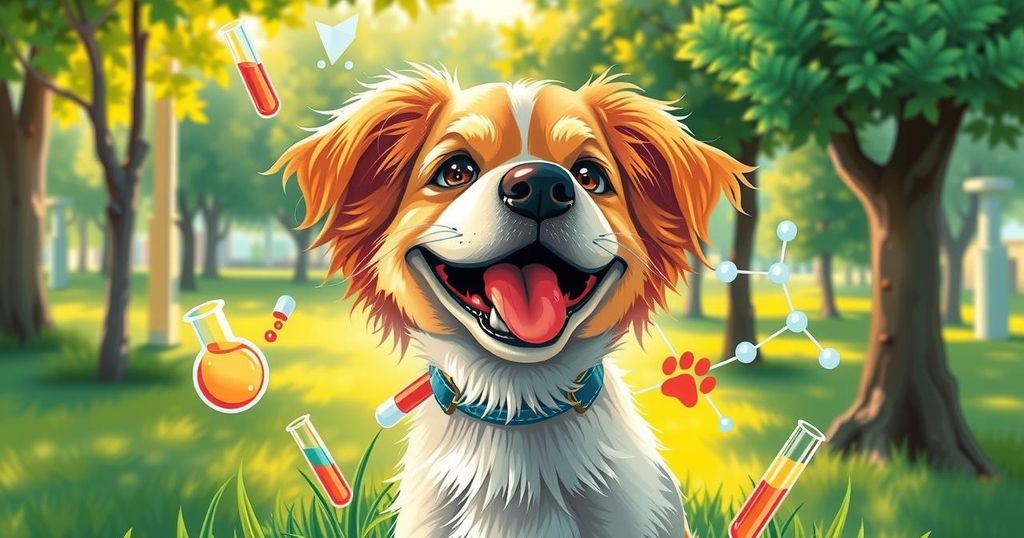Mizzou Research Enhances Dog Lives Ahead of National Dog Day
In honor of National Dog Day, this article highlights five significant research contributions from the University of Missouri’s College of Veterinary Medicine that improve the health and quality of life for dogs. From innovative cancer treatments to enhancing canine travel and training service dogs, Mizzou’s research is making impactful changes for pets and their owners.
Dog owners across the nation know that the University of Missouri’s College of Veterinary Medicine is a beacon of quality pet care. But it isn’t just the care that stands out; the cutting-edge research conducted here benefits furry friends worldwide. As we celebrate National Dog Day on August 26, let’s dive into five key discoveries from Mizzou that are making a difference in the lives of dogs and their humans.
First, let’s talk about a revolutionary approach to canine cancer treatment. In 2020, Jeffrey Bryan from Mizzou introduced a groundbreaking therapy that spares dogs the usual harsh side effects of chemotherapy. This alternative might actually kill cancer cells responsible for bone cancer. Its effectiveness was so remarkable, it caught the eye of the FDA, giving it a rare fast-track designation for possible human application in brain cancer treatment.
Then, just two years later, Bryan made waves again by employing “click” chemistry—think of it like snapping LEGO bricks together—to enhance the delivery of radiopharmaceuticals directly to bone cancer tumors in dogs. This work is part of Mizzou’s focus on precision medicine, which tailors treatment to the individual, quite literally shedding new light on canine health via the NextGen Precision Health initiative.
In another fascinating avenue of research, Mizzou’s Carol Reinero and Aida Vientós-Plotts connected the dots between dogs’ respiratory and digestive systems in 2023. Their study revealed that respiratory issues, like coughing, may also arise from problems in the upper aerodigestive tract. Essentially, if your dog is having trouble breathing, they might be swallowing too much air or inadvertently inhaling food or water. This insight could revolutionize how we diagnose and treat both respiratory diseases and digestive system abnormalities in dogs.
Now, onto the travel scene: historical quarantines for pets were a hassle for many pet owners trying to take their furry companions from rabies-affected areas to rabies-free zones. Thankfully, things are changing. Mizzou’s Veterinary Medical Diagnostic Laboratory now offers a rabies antibody testing service. This lets travelers bring their pets into places like Hawaii without the drudgery of lengthy quarantines. A big win for pet lovers everywhere!
Lastly, we shouldn’t overlook the remarkable work going on with service dogs. Back in 2020, Mizzou’s ROTC students teamed up with Retrieving Freedom, a nonprofit, to train service dogs that aid veterans suffering from PTSD and other disabilities. This partnership is not just about training; it’s about transforming lives, giving veterans support through the loyal companionship of highly trained dogs.
Mizzou’s veterinary research is not just academic—it’s making tangible improvements in the lives of dogs and their owners. From advanced cancer treatment to innovations in pet travel and the training of service dogs, the benefits are far-reaching. As we honor our canine companions on National Dog Day, it’s clear how vital research at Mizzou is in enhancing their health and welfare. The ongoing work of veterinary scientists is set to change the landscape of pet care for years to come.
Original Source: showme.missouri.edu




Post Comment